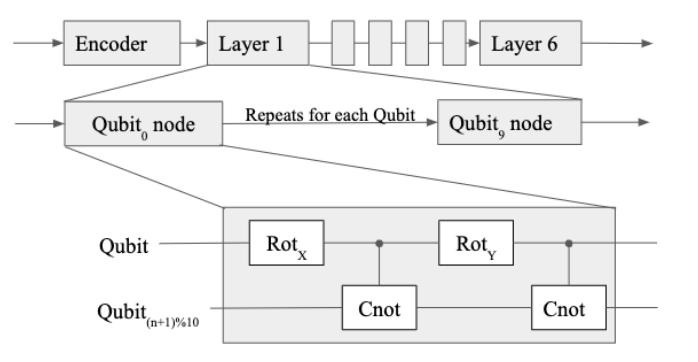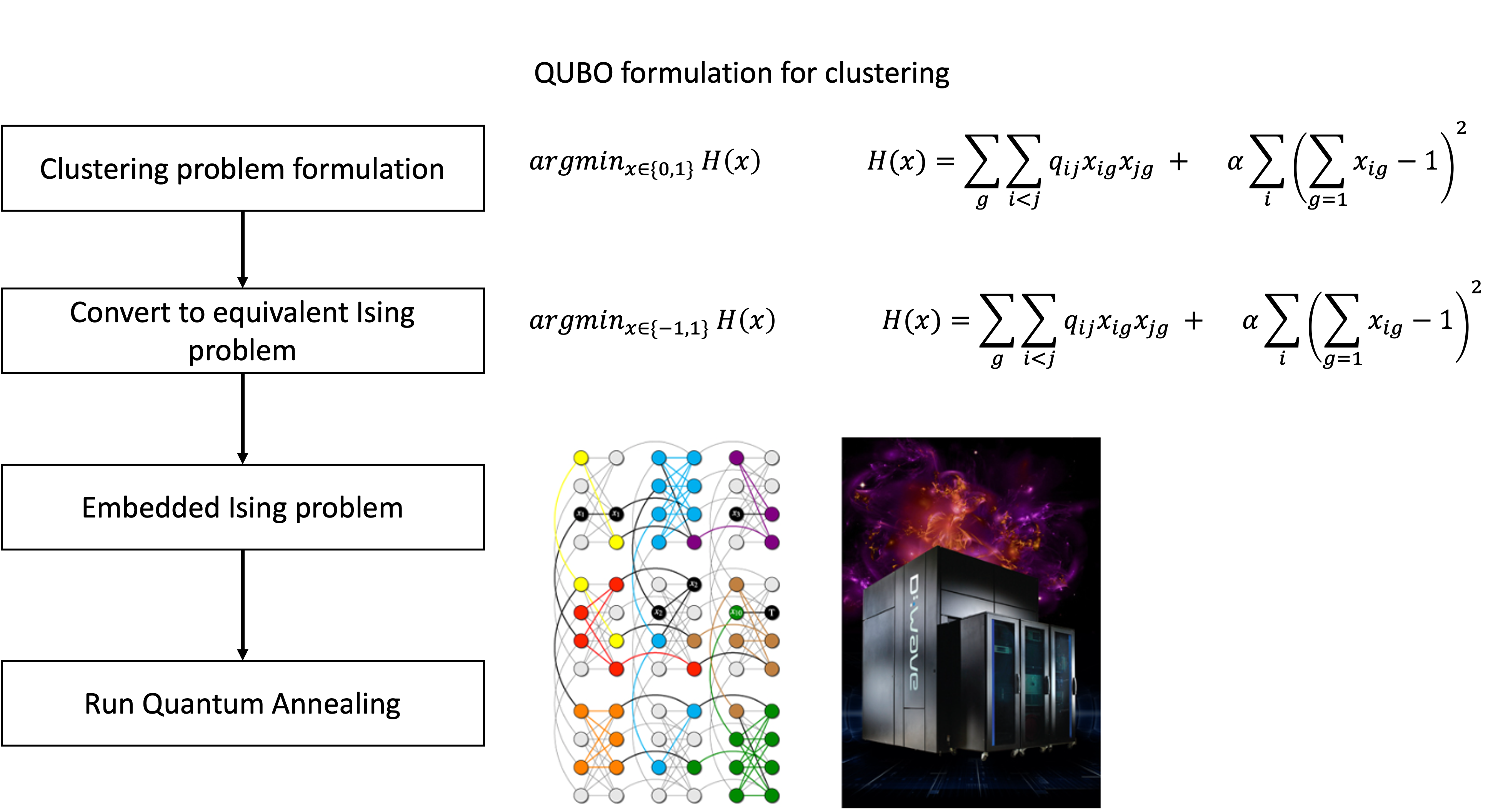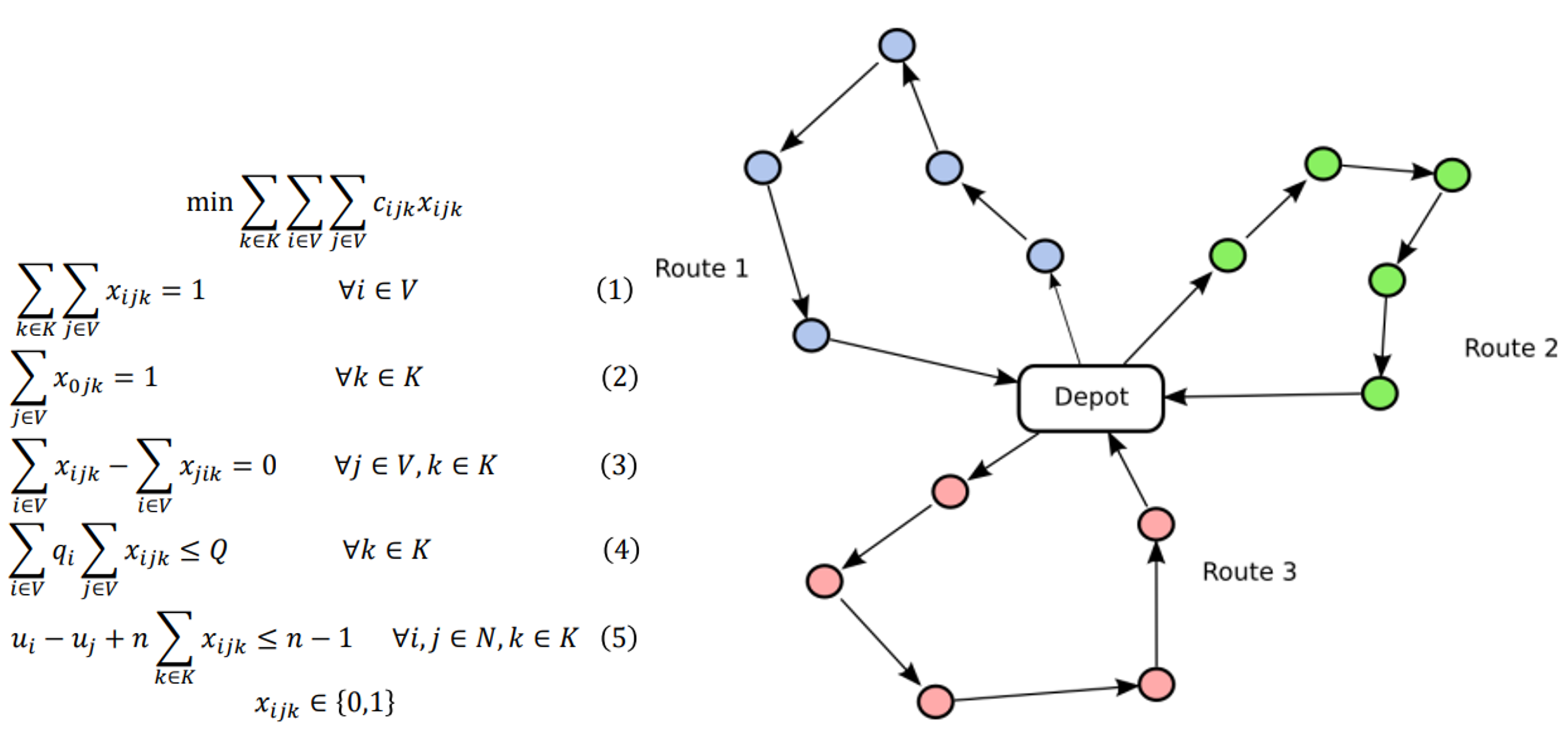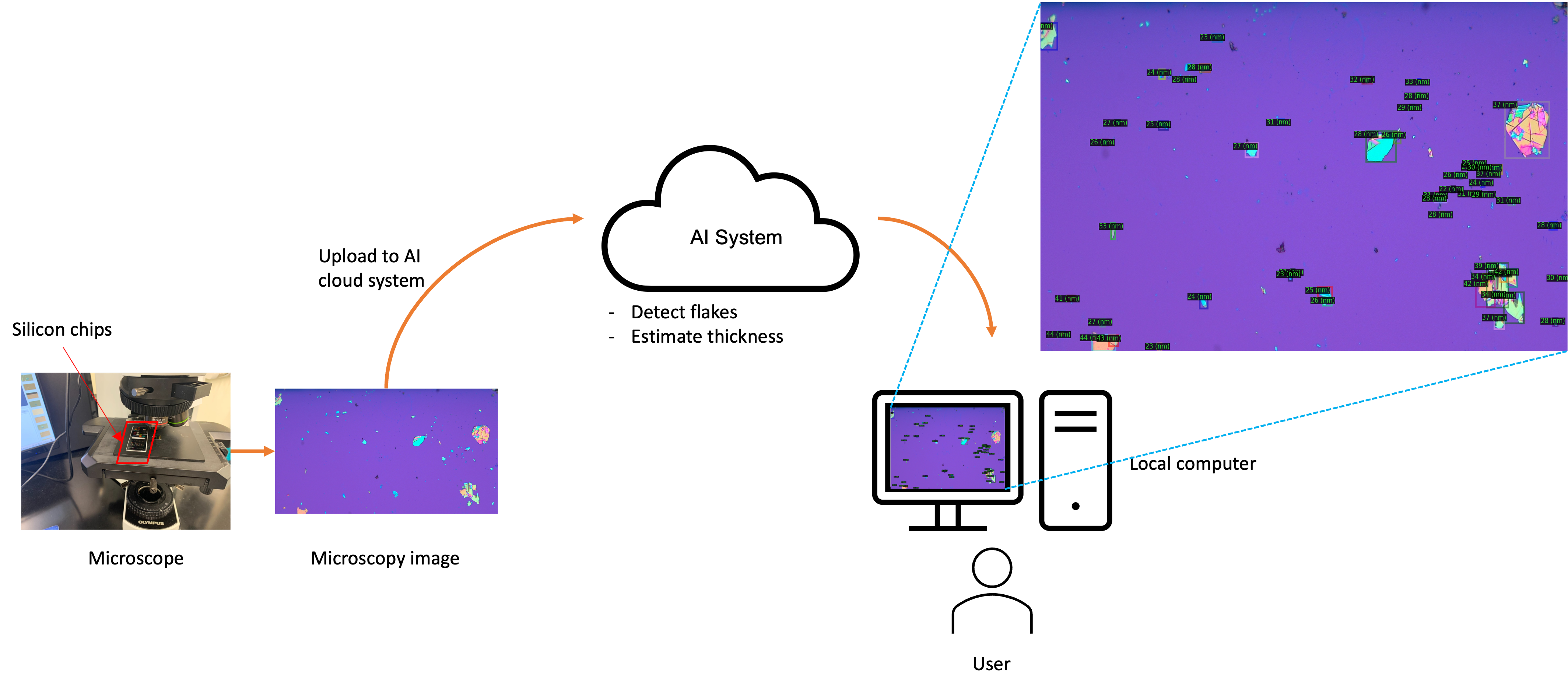Quantum Machine Learning
1. Quantum Neural Networks
Classical neural network algorithms are computationally
expensive. For example, in image classification, representing an image pixel by
pixel using classical information requires an enormous amount of computational
memory resources. Hence, exploring methods to represent images in a different
paradigm of information is important. We proposed a parameter encoding scheme for defining and
training neural networks in quantum information based on time evolution
of quantum spaces.
Differentiating between a classical neural network and a variational
quantum circuit

Schematic of the Variational Quantum circuit used. Every layer is defined as a series of rotation gates in the x and y directions. Every qubit is linked to one other using CNOT gates.

2. Unsupervised Clustering by Quantum Machine
Clustering problems are computationally expensive, especially for large datasets. In addition, it
requires a significant amount of computational resource and time to solve in the typical computer.
Meanwhile, quantum computing can perform calculations exponentially faster than classical computer.
Also, it is suitable for solving complex optimization and searching problems. By this reason, quantum
computing comes in as a potential solution to accelerate clustering algorithms and improve their
performance.
By this reasons, we prose a novel unsupervised clustering framework ultilizing quantum computer. In
particular, we formuate cluster as an optimization problem and then leverage quantum computer for
speedup clustering process.

3. Solving Transportation and Logistics Problems with Quantum
The Vehicle Routing Problem (VPR) is to find the best routs for a fleet of vehicles to start from and
return to a depot supplying the demand of all customers by visiting them once. The objective of this
problem is to minimize the total cost of travel with the contraint of vehicles capacity.



